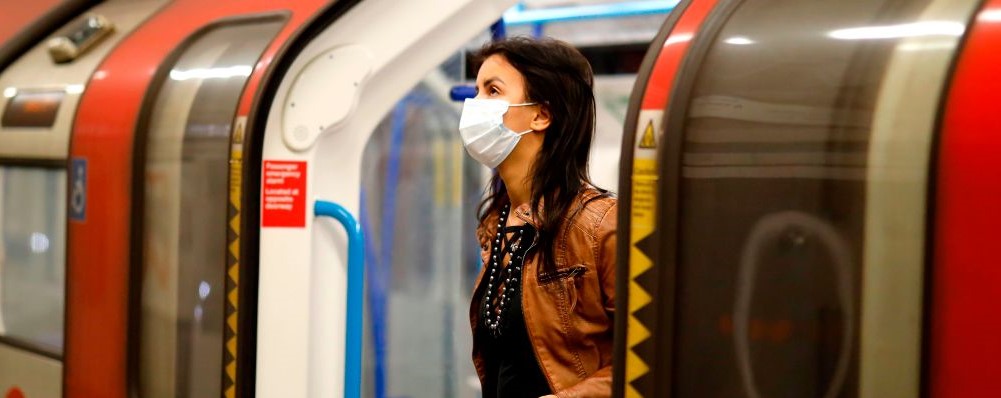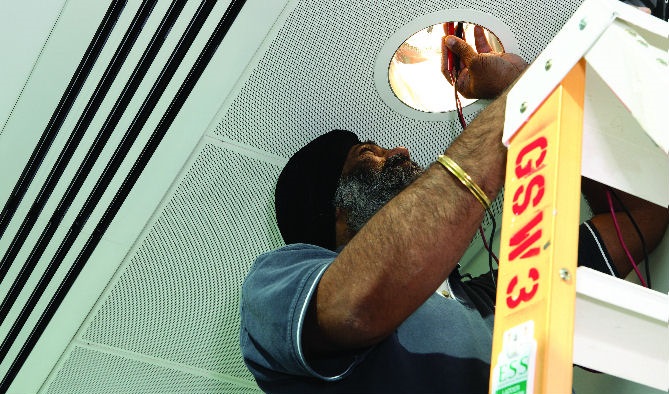Thousands receive pay rise after Living Wage hike
More than 200,000 workers are set to get a pay rise on Monday (November 11) after the charity the Living Wage Foundation upped its rate to ÂŁ9.30 an hour.
The Foundation, which annually sets the minimum wage it calculates is the basic minimum needed to live, has said the Living Wage in London will also rise to ÂŁ10.75 an hour.
The rise in the voluntary rate means the government’s mandatory minimum wage – now set at only ÂŁ8.21 an hour for workers aged 25 and over – has fallen further behind the â€real’ Living Wage.
The Living Wage Foundation highlighted today that its Living Wage is now £2,000 a year more than the government’s minimum, which is not linked to living standards.  The London Living Wage exceeds the mandatory minimum by £5,000 a year.
The Foundation has said this year it accredited 1,500 employers, taking the total number of employers committed to paying the Living Wage up to 6,000. Crystal Palace football club, Leeds Building Society, City Airport in London and Newcastle University are among those who have now signed up to pay the Living Wage this year.
The latest rise in the Living Wage has drawn attention to what the Labour and Tory parties say they will do to raise living standards if elected in December.
Chancellor Sajid Javid said at the Tory Party Conference in October that the party in power would ensure the minimum wage rises to ÂŁ10.50 an hour by 2024.
But Labour has put forward a much more generous offer to those now struggling on low pay – shadow chancellor John McDonnell said a Labour government would immediately increase the mandatory minimum wage to £10 an hour for all workers aged 16 and over. Labour has also pledged to ensure that rises in the minimum wage are linked to living standards, just as the Living Wage now is.
London Airports’ low pay culture
Today (November 1) is also the beginning of Living Wage Week and Unite has chosen to mark the day by highlighting the issue of low pay in London airports.
While London City Airport has committed to paying the London Living Wage to key direct suppliers and contractors, the agreement doesn’t cover restaurant staff or those working in currency exchange offices.
At other London airports, the situation is even more dire. The capital’s largest airport Heathrow employs an estimated more than 2,000 workers under the Living Wage, while there are roughly 600 workers at Luton Airport likewise not earning enough to live a decent life. Hundreds more at London Stansted Airport are paid under the Living Wage.
While Unite has had notable success in winning the Living Wage for many Gatwick Airport workers after concerted campaigning, far too many are still being paid less than the London Living Wage of ÂŁ10.75 an hour. Many catering and retail chain workers at Gatwick too are still being paid below the Living Wage.
London’s airport bosses are presiding over an army of low-paid workers despite raking in substantial profits – Heathrow recorded profits of £267m last year, while Gatwick posted profits of £260m.
Unite national officer for civil aviation Oliver Richardson said it was “entirely immoral that airports are making eye-watering profits, while the workers who directly serve the travellers are on poverty pay”.
“In recent years Unite has made huge strides in tackling the culture of poverty pay at airports but far more needs to be done before workers receive pay justice and poverty pay is ended,” he noted.
“The airports tender the contracts and issue licences to operate under, which often force workers onto low pay. By introducing decent employment standards into such documents this problem could be resolved overnight,” Richardson noted.
“Unite is already in the process of launching fresh campaigns to target the worst payers in the airport sector.”
Richardson made the point that if airports use the London title in order to generate customers and revenue, then they have what he called a “moral duty to pay the London living wage and Unite will be holding them to account”.
“It is only by joining a union such as Unite that workers will ever be able to achieve better pay and conditions.”
 Like
Like Follow
Follow


